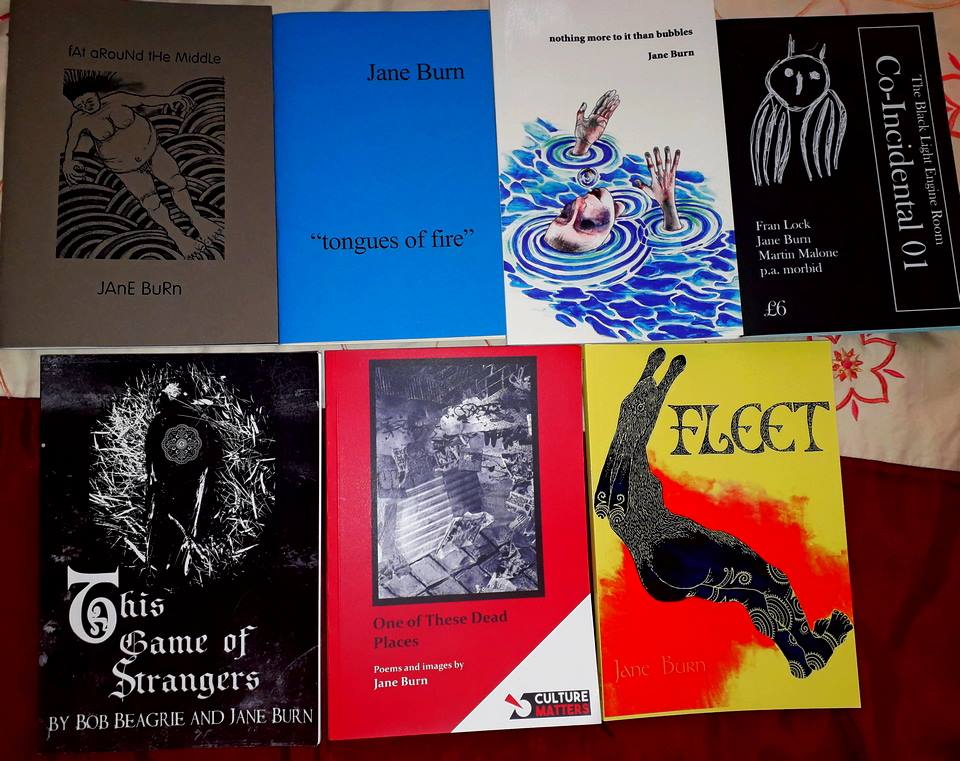
JANE BURN – POETRY AS HARD GRAFT, INSPIRATION, REACTION OR EXPERIMENT?
I interviewed poet & artist Jane Burn who won the Michael Marks Environmental Poet of the Year 2023-24 with A Thousand Miles from the Sea.
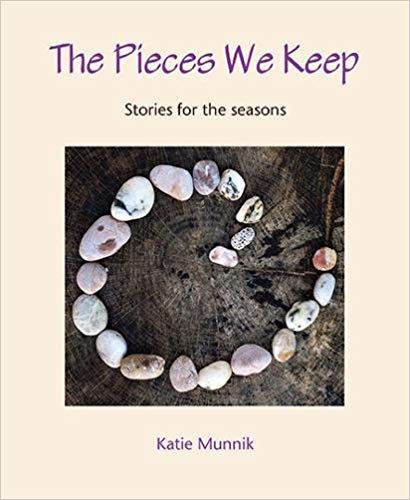
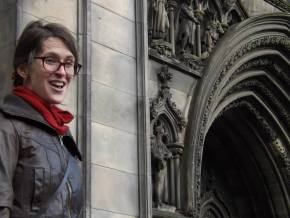
I interviewed author and poet Katie Munnik about what inspires her vividly-written stories. Katie‘s writings have appeared in The Cardiff Review, The Dangerous Women Project, Echoes of the City, and Geez Magazine. Her collection of short fiction, The Pieces We Keep was published by Wild Goose Publications, and her debut novel, The Heart Beats in Secret, is published by The Borough Press, a Harper Collins imprint.
Leslie: Can you expand on these phrases from your Twitter bio, please: ‘Knitter, Immigrant, Writer. Canadian Pilgrim’?
Katie: I learned to knit as a child because I liked the idea of being able to create my own clothes. As daughter number three, there were a lot of hand-me-downs coming my way so knitting became something I could do for myself. Then, I picked it up again several years ago when my husband and I went through a time of upheaval which saw us driving long-distance across Canada with two very small children and then relocating to London. As everything around us changed, it felt good to have something creative to hold onto. And now for almost a decade, we’ve lived away from home. Or maybe it’s better to say we’ve made our home in new places. Through all this, I kept knitting. As a craft and a habit, it is tied to family and tradition and, even in the midst of precarity, it can be comfortably productive and linear. Also I like the simple act of making something larger out of a piece of string.
I suppose identifying as a pilgrim is connected to that, too. Long-distance walking is like holding that piece of string and finding that, as I make my way along, the path is part of a wider, richer fabric. I love that expression – to make your way. Because we do, don’t we? With each step, we shape and craft where and who we are.
Leslie: What characterises your religious faith? How does it impact on your writing?
Katie: I am Christian and I can say that impacts my writing. Or that my writing impacts my faith. It probably works both ways.
I am interested in the more-than-this. In depth. In story. In how patterns emerge when we pay attention and how meaning comes from that.
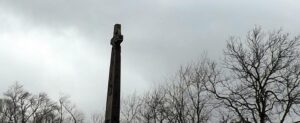 I was raised in the Presbyterian Church in Canada and feel rooted in that bookish, justice-based tradition. I suppose you could say that the idea of Protestantism appeals to me. It is a tradition that draws on its prophetic past – in that it seeks to listen to its singing, lamenting, justice-hungry prophets – and isn’t afraid to be countercultural. In writing my stories, I feel that I, too, am pointing towards a way of life that is abundant and gracious, nourished by its traditions but able to make its way into a changing future.
I was raised in the Presbyterian Church in Canada and feel rooted in that bookish, justice-based tradition. I suppose you could say that the idea of Protestantism appeals to me. It is a tradition that draws on its prophetic past – in that it seeks to listen to its singing, lamenting, justice-hungry prophets – and isn’t afraid to be countercultural. In writing my stories, I feel that I, too, am pointing towards a way of life that is abundant and gracious, nourished by its traditions but able to make its way into a changing future.
Leslie: Can you tell us, please, about some of the most inspiring moments you’ve shared stories at schools, community groups and festivals?
Katie: I love sharing stories face to face. It feels like the flip side of the writerly coin. When writing, I curl in. I focus on seeing and capturing, on pinning things down. It is solitary, inner work. Reading and storytelling is unfurling. I open up and share what I’ve seen. I get to watch how my words affect others.
There is an old Scottish saying that I first heard from Donald Smith at the Scottish Storytelling Centre: “The story is truly told eye to eye, mind to mind and heart to heart.”
There’s real beauty in that.
But this isn’t always easy. I remember one afternoon I was part of an Easter production traveling through the streets of Edinburgh. Different characters shared their part of the story in different locations, and Edinburgh herself played Jerusalem. I got to stand in front of St Giles Cathedral as Mary the mother of Jesus, and I told the audience how my son fit – and didn’t fit – into the model of a Temple-shaped faith. The production was very minimal and low-tech so I simply climbed up on a high bit of stonework and spoke out as loudly as I could. On the other side of the street, there was a busking bagpiper, but luckily, he took a break when I started talking. But then there was heckling. A couple of men walking past thought they’d add their opinions to my piece – and I haven’t a clue whether they knew this was theatre or not, but they certainly did project. I paused. They bellowed. I kept going. Later it struck me that they weren’t an interruption at all. Just as I was, they were adding to the story. Mary’s Jerusalem was full of different people living differently-shaped lives. Faith lives in the overlap between our ways of seeing. That’s where the story is. Which can be hard but can also be real and beautiful, too. And that creative tension so much more present and obvious in face-to-face storytelling than it is on the page.
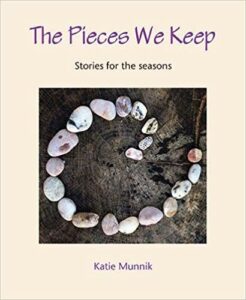 Leslie: Could give us an overview, please, of the settings and characters in your short stories The Pieces We Keep? What sort of writer would you say you are?
Leslie: Could give us an overview, please, of the settings and characters in your short stories The Pieces We Keep? What sort of writer would you say you are?
Katie: The Pieces We Keep is a collection of short personal stories, each told in the voice of someone who is looking for God – which means different things to different people at different times. Some of these stories feature characters from scripture, history, and legend, and others are more contemporary, but each is set within a specific season of the church’s year.
Leslie: What aspects of the changing cycles and seasons of the year and the liturgical patterns of the church have most inspired you as a writer – why them?
Katie: The calendar keeps me grounded in the present and helps me pay attention. It is beautiful how changing natural seasons speak to the thematic seasons of the liturgical year. Worshipping with the Anglicans over the past few years, I’ve notice that more and I’ve found it beautiful and helpful. We wait in Advent as the days grow darker, we lean into new life as spring erupts at Easter. But I also notice how in some seasons, my heart works at a different pace. I need a longer Lent or maybe I’m not ready for Pentecost when it comes. I suppose that, too, is like weather. Some winters take longer than others. It is good to have a framework so that we can notice these differences, too.
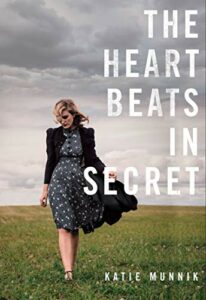 Leslie: Could give us an overview, please, of your new book, The Heart Beats in Secret? In what ways does it build on The Pieces We Keep?
Leslie: Could give us an overview, please, of your new book, The Heart Beats in Secret? In what ways does it build on The Pieces We Keep?
Katie: Ah, the what-is-it-about question! The short answer is that it is about a Canadian woman who inherits her grandmother’s house on the east coast of Scotland and there is a goose inside.
The longer answer is that it is a family story, tracing three generations of women as they learn about love and decisions. About the things we think we know and stories we invent to fill in the gaps. In that way, you might say it builds on The Pieces We Keep. They are both books about how we build our understanding of both the world and our own hearts.
Leslie: Why do you write?
Katie: I write to look for meaning. Or maybe to make meaning. It feels natural to me to craft stories as a way of trying to understand and maybe to capture and remember things, too. Putting things down on a page lets you see them for what they are and sometimes patterns emerge. When I was growing up, my mum was always telling me to write things down. As if thoughts were fleeting and needed to be captured so that they could be useful later. I took that to heart.
Leslie: How do you experience the sacred in everyday living and the everyday in the sacred?
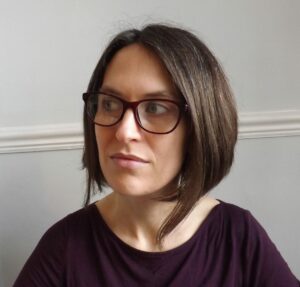
Katie: How is always a tricky question. There isn’t a recipe. But I try to pay attention and sometimes when I do, I catch a glimpse of the more-than-this. And sometimes it surprises me, interrupting whatever “useful” thoughts I’m trying to follow. Riding my bike through the park helps. Watching for the changing colours in the trees and talking about them with my kids. Mealtimes help, too. There is a lot to be learned and experienced at the family table. I think we should spend more time together at the table. That would be a good thing.
Next week, Photographer James Gentle, who runs a photographic business in Tring, Herts, talks about ‘Storytelling Photography’.
ABOUT LESLIE TATE’S BOOKS:

I interviewed poet & artist Jane Burn who won the Michael Marks Environmental Poet of the Year 2023-24 with A Thousand Miles from the Sea.
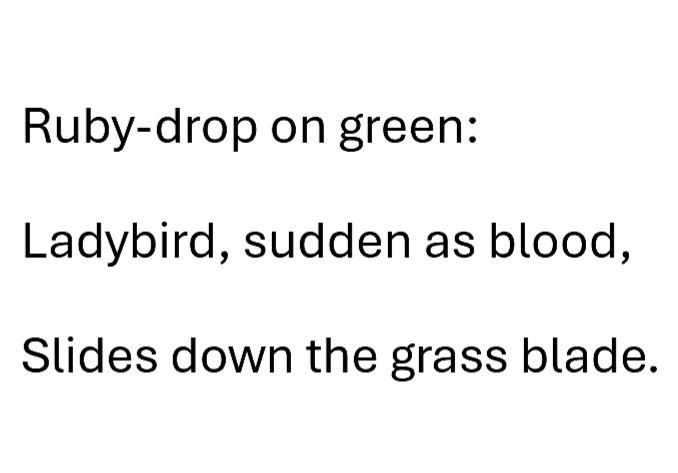
I interviewed ex-broadcaster and poet Polly Oliver about oral and visual poetry, her compositional methods, and learning the Welsh language. Polly says, “I absolutely love
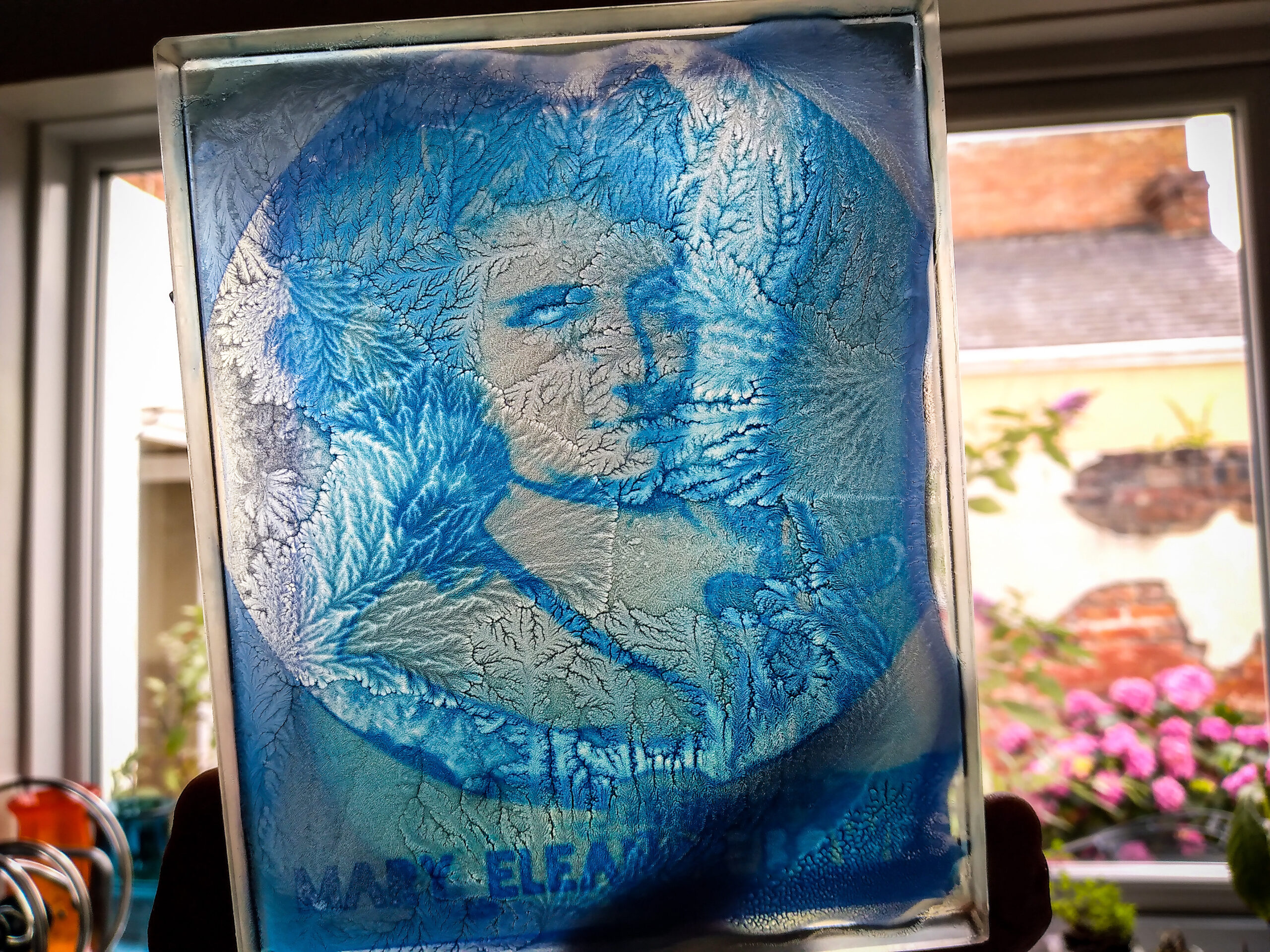
I interviewed Jo Howell who says about herself: “I’ve been a professional photographic artist since I left Uni in 2009. I am a cyanotype specialist.
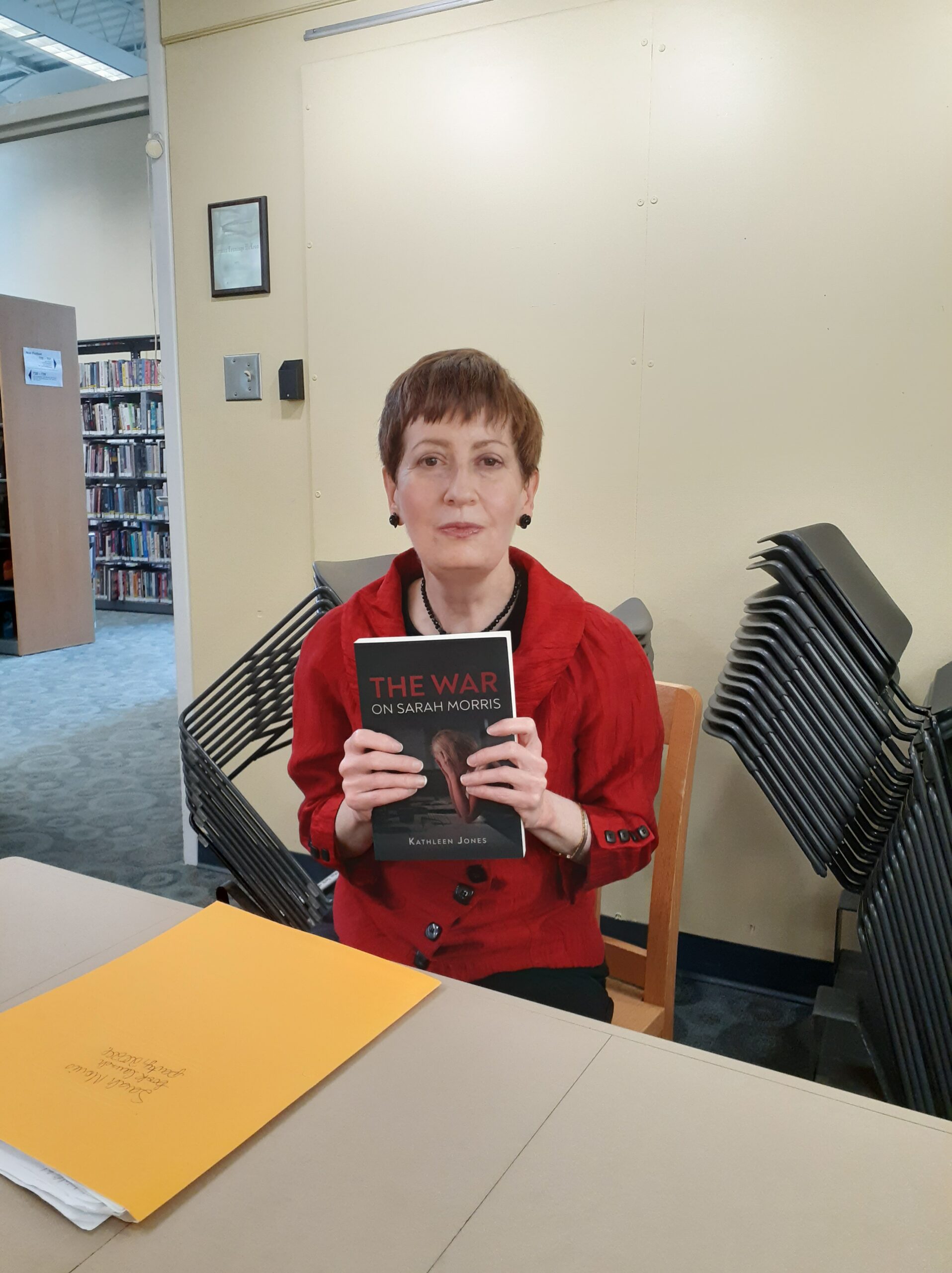
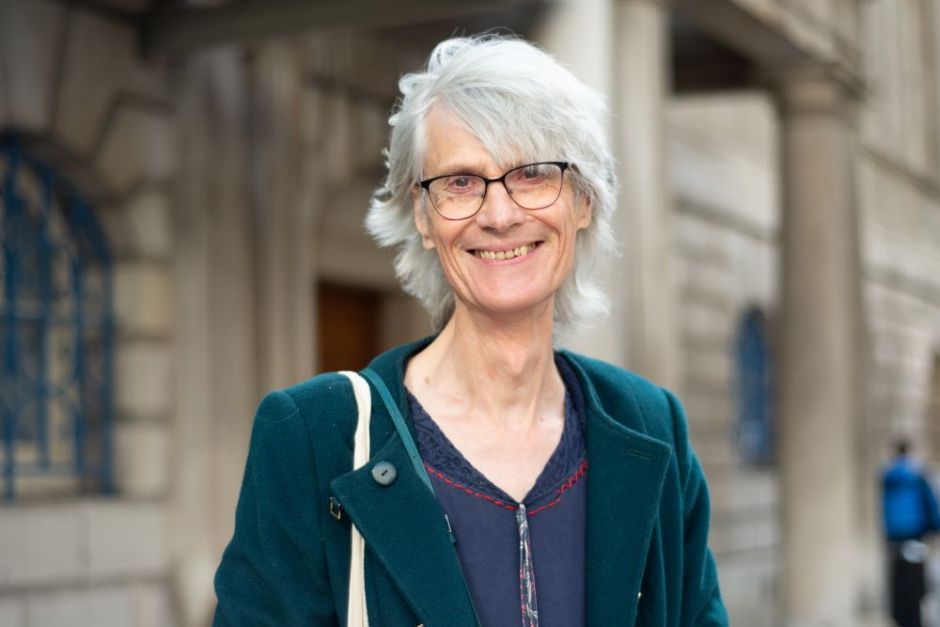
Poet Tracey Rhys, writer of Teaching a Bird to Sing and winner of the Poetry Archive’s video competition reviews Ways To Be Equally Human. Tracey,
| Cookie | Duration | Description |
|---|---|---|
| cookielawinfo-checkbox-analytics | 11 months | This cookie is set by GDPR Cookie Consent plugin. The cookie is used to store the user consent for the cookies in the category "Analytics". |
| cookielawinfo-checkbox-functional | 11 months | The cookie is set by GDPR cookie consent to record the user consent for the cookies in the category "Functional". |
| cookielawinfo-checkbox-necessary | 11 months | This cookie is set by GDPR Cookie Consent plugin. The cookies is used to store the user consent for the cookies in the category "Necessary". |
| cookielawinfo-checkbox-others | 11 months | This cookie is set by GDPR Cookie Consent plugin. The cookie is used to store the user consent for the cookies in the category "Other. |
| cookielawinfo-checkbox-performance | 11 months | This cookie is set by GDPR Cookie Consent plugin. The cookie is used to store the user consent for the cookies in the category "Performance". |
| viewed_cookie_policy | 11 months | The cookie is set by the GDPR Cookie Consent plugin and is used to store whether or not user has consented to the use of cookies. It does not store any personal data. |
4 responses
Kate Munnik is a fascinating person and writer. A very interesting interview. Thank you very much Leslie.
🙂 🙂 🙂
Knitting is the original binary system, but also an antidote to life on line. I always have knitting of some sort on the go, soothing and creative in a completely different way from writing. The inherited house in Scotland sounds intriguing.
Thanks, Janet. Knitting for sanity makes sense!